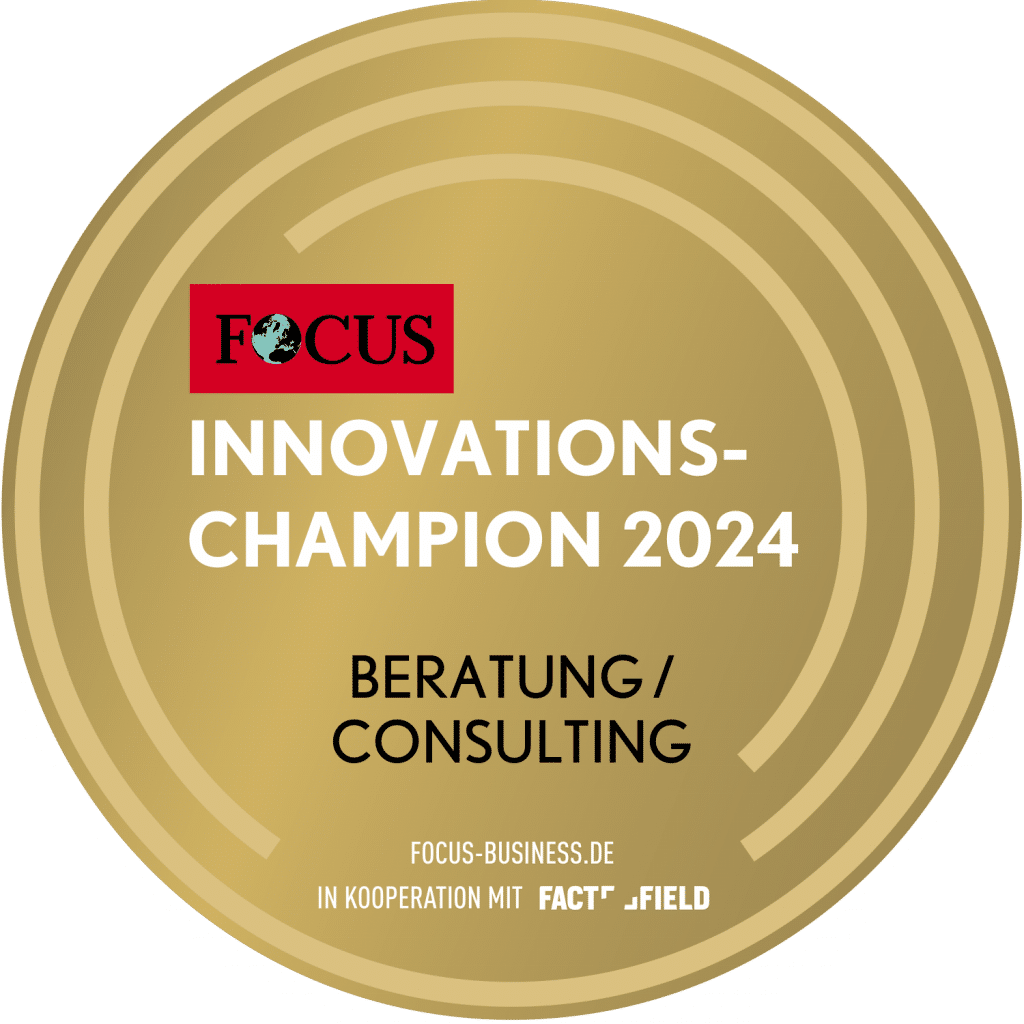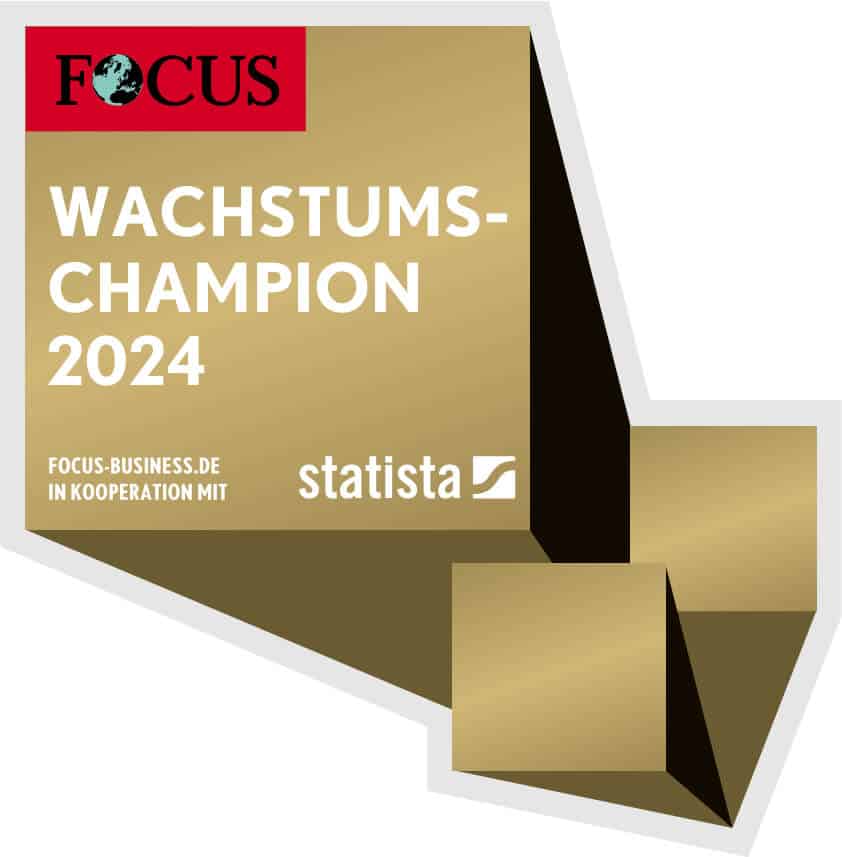Digital transformation is changing every area of our lives: our businesses, our products and processes and our leadership. We are entering a new world that is bringing huge changes with it - and we are all directly or indirectly affected. TCI is addressing precisely these interactions in a dedicated event to discuss current topics. To this end, it is inviting decision-makers in the SME sector in particular to Montabaur* in September. Here is an interview in advance of the presentation and discussion on research and digital technology, challenges and practical examples from and for SMEs: Walter Manns (WM) spoke with Prof. Dr. Claus W. Gerberich (CG) about his presentation "Roadmap Digital Transformation - The Successful Path to a Digital Company" at this exclusive event.
[su_spacer]
[su_button url="https://ocm-event.tci-partners.com/" target="blank" style="3d" background="#64696C" color="#F48D31″ size="8″ center="yes" icon="icon: hand-o-right" icon_color="#F48D31″]Change management in the digital transformation:
Take part![/su_button]
[su_spacer]
Digital transformation in everyday corporate life - Interview with Prof. Dr. Claus W. Gerberich
WM: Digital transformation or digitalization are current buzzwords that are hard to avoid. However, the ideas behind them are very different and sometimes very abstract. Prof. Gerberich, can you briefly and concisely explain what is meant by this buzzword?
CG: The digital transformation is the adaptation of all products and processes and their systematic networking. This networking has an impact both internally and externally. Digitalization increases the importance and value of data. This in turn means that whoever owns the data in the value chain gains influence and power. Digitalization encompasses all areas of life and all functions of the company. As a result, previous business models are disappearing and new business models are emerging and rapidly gaining in importance.
WM: So what does digital transformation mean, or what can it actually mean for the entrepreneur and the company as a whole in this context?
CG: The customer is involved in the processes and actively participates in the design of the products and services. This raises the seemingly banal question: "Who is the customer?" At first glance, the answer is quite simple: the customer orders, receives the product and pays. In addition to the direct customer, however, the end customer, the user, is playing an increasingly important role in the digitalized world. The aim is to know and control the entire customer chain. It is therefore important to offer each customer and potential multiplier in this chain services tailored to their needs. Customer communication must be redesigned.
Only digitalization creates the basis for controlling the entire customer chain in order to move from a push to a pull strategy. You need to know that, what requirements and expectations all partners/influencers/multipliers in the customer chain and it is important to align the value proposition with this. This enables the company to network with the customer's entire customer journey and create new touchpoints in customer contact. Digitalization creates the basis for permanent customer contact in real time.
The digital company
WM: Digitalization or digital transformation is often primarily understood as a technologically driven innovation, often in connection with products and/or manufacturing processes. Is that the case or is there more to it?
CG: Digitalization is triggered and made possible by new technologies. The new technologies are the driving forces - anyone who does not master these new technologies has no chance in the market. However, customers don't buy technologies, they buy solutions. They don't really care which technologies are used to generate the solution.
The entire company must therefore be involved to ensure that digitalization is not just an issue of production and manufacturing processes. In some cases, production technologies can change so radically that little of the old know-how can still be used. However, investing in new technologies should generate competitive advantages and create opportunities for differentiation in the market.
WM: What does "digital company" mean to you? Does it also mean that companies will not/can no longer exist in their current form?
CG: It's a nice experience to ride a horse-drawn carriage in Vienna, but all business and travel today is handled by other means of transportation. We are now dealing with disruptive innovations and disruptive business models that will radically replace the previous ones. A few nostalgic people will remain in small markets.
According to the scientific studies of the Russian scientist Kondratieff, we are currently in transition to a new cyclewhich, like the previous ones, is characterized by a new basic technology, namely big data information and communication. The old technologies and business models are being displaced as a result, just as in previous technology cycles. This has been the case in every previous cycle - and the digital transformation has all the key characteristics.
The digital transformation roadmap for SMEs: How to make the change a success!
WM: The title of your article, Prof. Gerberich, is "Roadmap Digital Transformation". This suggests a concrete "digitalization roadmap" for companies. Can you briefly explain the start, finish and individual stages of this roadmap?
CG: First of all, the digitalization of a company is not a project, but a process that never ends. It is important to initiate this process and make sure that the process follows a certain pattern. Every company has its own DNA and the digitization process will always be unique. However, certain aspects must always be taken into account, otherwise the risk of failure is too great.
The roadmap has a customers a start and end pointwhich the company has to go through again and again in loops as it changes.
The customer and his requirements know and to fulfill is the focus and is the start and goal of the digitalization process. However, this must include all components and factors of the company's existence and actions and align them with this goal. Depending on the complexity of the process and the number of players involved, a large number of stages can/must be passed through from start to finish.
Digitalization in fast motion
WM: There are quite a few people who say: "Digitization is nothing new. It's been around for 30, 40 or 50 years. Why all the hype now?" Is that the case or what is different today compared to "digitalization" x years ago?
CG: We have always been doing digitalization. Companies have always tried to record, measure and digitize processes. For many decades, companies have been concerned with optimal machine utilization by calculating the optimal batch size. However, the customer, who only ordered and wanted one piece, was ignored. There are approaches to digitalization in all areas of the company. However, they were all focused on sub-functions and sub-processes. The integrated and networked approach was missing. These partial approaches to digitalization only reinforced the functional and box-ticking mindset.
Frederic Vester, the well-known German biologist and Club of Rome author (original title: "Die Kunst, vernetzt zu denken: Ideas and Tools for Dealing with Complexity") called for thinking and acting in relational contexts in his report to the Club of Rome ten years ago, however. This is because linear thinking and action is a mistake and does not work in practice.
Today's approach is therefore completely different; the entire company is networked and all processes are also networked with each other. Likewise, digitalization no longer ends at the factory gates, but includes the market, the customer, the suppliers and the supply chain.
Horizontal and vertical digitalization in real time is leading to fundamentally new structures and management approaches. The current dimension of digitalization is therefore completely different from the many individual digitalization approaches of the past. Companies must completely reposition themselves.
WM: Prof. Dr. Gerberich, thank you very much for this exciting information and insights. We look forward to hearing more from you at your presentation "Roadmap Digital Transformation" at the event on 24.09.2019 in Montabaur.
The interview with Prof. Dr. Claus Gerberich was conducted by Walter Manns.
Change management in the digital transformation: Take part!
A dedicated TCI event on this hot topic is aimed at decision-makers in the SME sector. The aim is to give all participants the valuable opportunity to talk about precisely those aspects that are of central importance to their own company. For exactly the right food for thought for successful change management: you can find further information on the schedule and participation at our event page on XING and at https://ocm-event.tci-partners.com/.
[su_spacer]
[su_button url="https://ocm-event.tci-partners.com/" target="blank" style="3d" background="#64696C" color="#F48D31″ size="8″ center="yes" icon="icon: hand-o-right" icon_color="#F48D31″]Change management in the digital transformation:
Secure your participation now[/su_button].
[su_spacer]
The atmosphere at TCI events: some insights into last year's event
At this exclusive event, TCI will once again be addressing highly topical issues and offering decision-makers in the SME sector in particular the opportunity for discussion. To get an impression of the customized TCI events, please watch the video to the event organized by TCI in September 2018. Simply click on the picture:
[dsgvo-vimeo url="https://vimeo.com/291243565″ images="https://tci-partners.com/wp-content/uploads/2019/07/tci-event_video-impressionen-customer-excellence_monrepos_seminarraum.jpg"]
—
*Montabaur: Conveniently located on the A3 and ICE route between Cologne and Frankfurt - and the perfect venue for "Change management in digital change".
Further insights into the event can be found in other exciting contributions as part of the event: "Digital change, digitalization, digital transformation - just buzzwords or more?" and "Everyone is talking about digitalization. So are we."

About Professor Dr. Claus W. Gerberich
Professor Dr. Claus W. Gerberich is a partner at TCI and holds the Chair of International Management and Controlling at the University of Applied Sciences in Worms. He also lectures at universities in Germany, Austria, Switzerland and the Netherlands and sits on the supervisory boards of various medium-sized international companies. The member of the EWIF Association of European Family Businesses Executive Committee is one of the expert speakers at the TCI event "Change Management in the Digital Transformation": The title of Professor Dr. Gerberich's keynote speech is "Roadmap Digital Transformation - The Successful Path to the Digital Company".
(Cover image: © duncanandison | stock.adobe.com)


